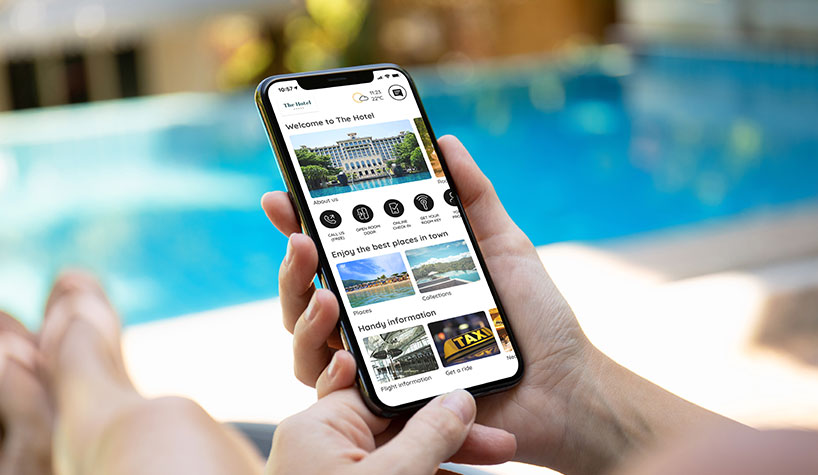LISBON—Personalization is important, but so is social distancing. B-Guest’s Online Check-In now offers a new feature enabling hotels to not only check their guests in at a suitable difference, but provide a custom experience.
“I believe that the current situation that the whole society is experiencing, with the need of social distance, will change our behaviors for the years to come,” said Manuel Lima, director, B-Guest. “The use of digital transformation communication channels to allow remote work or remote education was already a trend that society was gradually adopting, but it has now experienced a boom never seen before—creating what some already call ‘the greatest remote work experience in history.’ This need for adaptation will leave its impact, and many people and companies, when familiarizing themselves with these tools at this stage, will eventually adopt some of their processes for the future.
“The same will be expected to happen in the hotel industry,” he added. “What was already a global trend with more and more guests choosing to use the digital communication channels made available by hotels, whether to check in online, to communicate by chat with reception or to place a room service request in the hotel app, there will be even greater demand after this period. Technology will play an important role in the communication between hotels and their guests and in the automation of manual tasks in order to have productivity gains when the operation returns to normal levels.”
With B-Guest’s Online Check-In, hotels can reduce contact points with the guests. Guests submit all of their information and requests online prior to arrival, enabling them to spend less time—or no time at all—at the front desk. “As for the guest preference feature, it allows guests to share their needs and preferences in advance, so that everything is taken care of during their stay at the hotel,” he said.
“On the safety side, the Online Check-in allows hoteliers to offer a contactless check-in,” Lima added. “For the hotel, there are operational gains, as the process at reception is streamlined, and being 100% digital, the hotel can guarantee that all the information, contacts and consents from guests are correctly inserted on the PMS. The digital communication tools allow hotels to communicate constantly with their clients (recurring guests) in all their journey. It is fundamental to keep the guests informed so they can feel safe and regain trust in the hotel and/or group.”
Hotels can customize the types of questions it asks of guests. “Apart from the more obvious information required for the check-in process, such as passport data, we see hotels using the additional questions feature to ask their guests if they would need a transfer from the airport to the hotel, if they would like to book any of the hotel services (restaurant, spa, etc.), or if there is any other assistance they would need during their stay,” Lima said.
Looking toward the future, Lima noted, “It is a growing trend within the industry, with hotels giving differentiated and personalized service to their guests based on their preferences and specific needs. Technology plays a big role in this trend, through tools such as CRM platforms, loyalty programs and the guest preferences feature, as ways to better understand and segment the guests, to allow to match their needs and expectations. There is still a long path ahead, but certainly it will be one of the areas where I expect more innovation and adoption from hotels within the coming years.”
